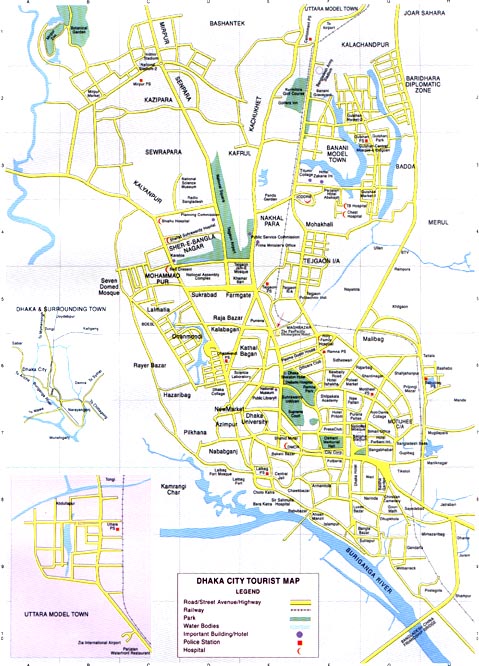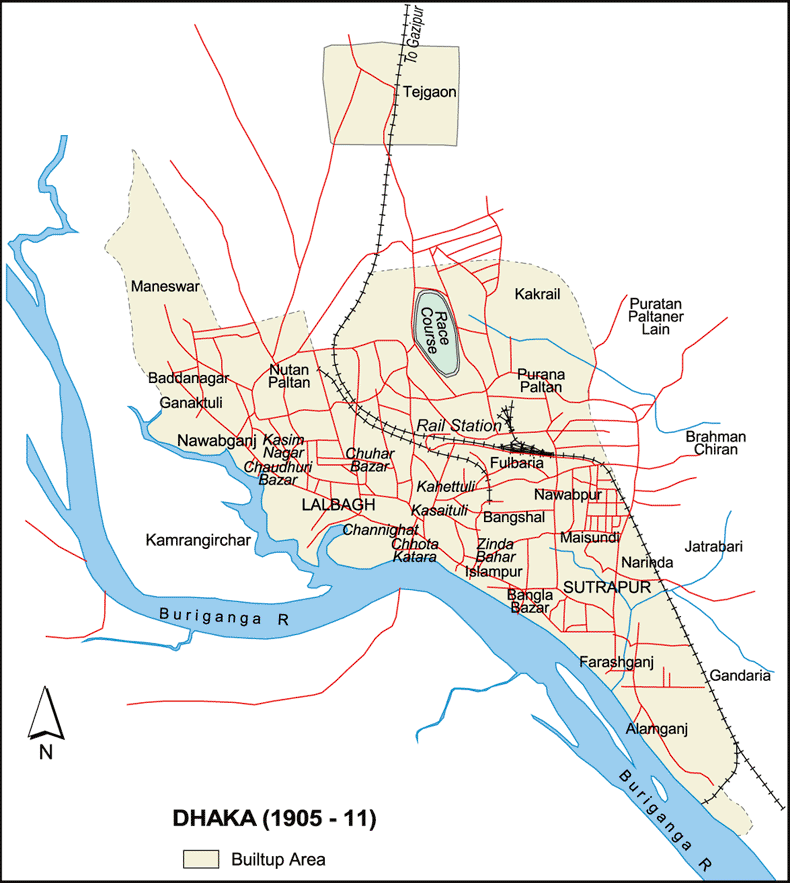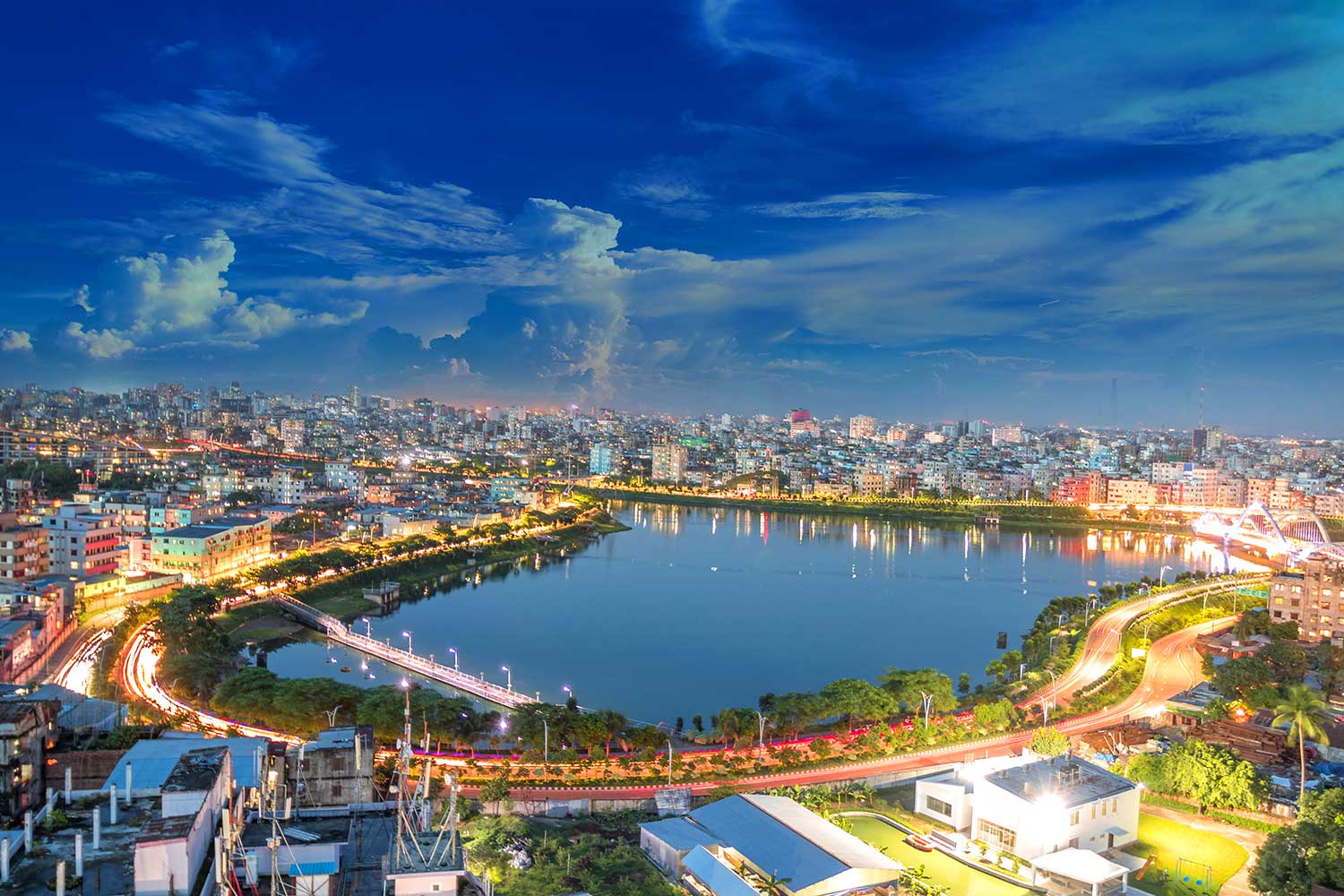Navigating Dhaka: A Comprehensive Guide to Bangladesh’s Capital
Related Articles: Navigating Dhaka: A Comprehensive Guide to Bangladesh’s Capital
Introduction
With great pleasure, we will explore the intriguing topic related to Navigating Dhaka: A Comprehensive Guide to Bangladesh’s Capital. Let’s weave interesting information and offer fresh perspectives to the readers.
Table of Content
Navigating Dhaka: A Comprehensive Guide to Bangladesh’s Capital

Dhaka, the vibrant capital of Bangladesh, pulsates with life, a tapestry of bustling markets, historic landmarks, and modern skyscrapers. To fully appreciate this dynamic city, understanding its spatial layout is crucial. This article provides a comprehensive guide to the map of Dhaka, highlighting its key features, neighborhoods, and points of interest.
The Geographic Context of Dhaka
Dhaka sits nestled on the banks of the Buriganga River, a vital waterway that has shaped the city’s history and development. The city’s location in the fertile delta region of the Ganges and Brahmaputra rivers contributes to its lush greenery and fertile agricultural lands.
Major Areas and Neighborhoods
Dhaka is divided into several key areas, each with its own distinct character:
- Old Dhaka: This historic area, situated along the Buriganga River, is a labyrinth of narrow streets, ancient mosques, and bustling bazaars. It houses iconic landmarks like the Ahsan Manzil, a 19th-century palace, and the Lalbagh Fort, a Mughal-era fortress.
- New Dhaka: This modern section of the city boasts wide roads, modern architecture, and commercial hubs. It houses the National Parliament Building, the Bangladesh Bank, and various government offices.
- Gulshan and Banani: These affluent neighborhoods are known for their upscale residential areas, shopping malls, and entertainment venues.
- Dhanmondi: This residential area is a popular choice for families and offers a tranquil atmosphere with parks and green spaces.
- Motijheel: This commercial hub is a center for banking, finance, and trade, with numerous businesses and offices.
- Mirpur: This area is known for its industrial zones, residential areas, and the Bangabandhu National Stadium.
Key Points of Interest
Dhaka offers a rich tapestry of attractions for visitors and residents alike:
- Historical Landmarks: The Ahsan Manzil, Lalbagh Fort, Star Mosque, and the Dhakeshwari Temple offer glimpses into the city’s rich history and diverse cultural heritage.
- Museums and Art Galleries: The National Museum, the Liberation War Museum, and the Bangladesh National Museum of Fine Arts showcase the country’s artistic and cultural achievements.
- Parks and Gardens: The Ramna Park, the Dhanmondi Lake, and the Botanical Garden provide green spaces for relaxation and recreation.
- Shopping and Entertainment: The Bashundhara City Shopping Mall, the Jamuna Future Park, and the Dhanmondi Lake area offer a range of shopping and entertainment options.
The Importance of Understanding Dhaka’s Map
A thorough understanding of Dhaka’s map is essential for:
- Navigation: The city’s labyrinthine streets and dense traffic can be challenging to navigate. A map helps visitors and residents alike find their way around efficiently.
- Exploring the City: A map allows individuals to plan their itineraries, discover hidden gems, and explore different neighborhoods based on their interests.
- Understanding the City’s Structure: By studying the map, one can gain insights into the city’s historical development, urban planning, and the distribution of resources.
- Accessing Services and Amenities: A map helps locate essential services like hospitals, schools, banks, and transportation hubs.
FAQs about Dhaka’s Map
Q: What is the best way to get around Dhaka?
A: Dhaka offers a variety of transportation options, including:
- Rickshaws: These three-wheeled vehicles are a common mode of transport, particularly for short distances.
- CNGs: Compressed natural gas-powered auto-rickshaws are another popular choice.
- Buses: Public buses offer a more affordable option for longer distances.
- Taxis: Taxis are available for hire, but traffic congestion can make travel times unpredictable.
- Metro Rail: Dhaka’s under-construction metro rail system is expected to improve public transportation significantly.
Q: What are some of the best places to eat in Dhaka?
A: Dhaka boasts a diverse culinary scene, offering a range of cuisines:
- Traditional Bangladeshi Cuisine: Explore the flavors of biriyani, hilsa fish, and various curries in Old Dhaka.
- International Cuisine: Dhaka offers a wide range of international cuisines, including Chinese, Indian, Italian, and Western food.
- Street Food: Dhaka’s street food scene is a vibrant experience, offering a variety of snacks, desserts, and beverages.
Q: What are some tips for navigating Dhaka?
A:
- Be Prepared for Traffic: Dhaka is known for its heavy traffic, so plan your travel time accordingly.
- Learn Basic Bengali Phrases: Knowing a few basic Bengali phrases can be helpful when interacting with locals.
- Respect Local Customs: Dress modestly and be mindful of cultural sensitivities.
- Stay Hydrated: Dhaka’s humid climate can be challenging, so stay hydrated by drinking plenty of water.
- Use a Local SIM Card: Having a local SIM card can be helpful for communication and accessing data.
Conclusion
The map of Dhaka is a vital tool for understanding and navigating this dynamic city. It provides a framework for exploring its rich history, vibrant culture, and bustling urban landscape. By studying the map and utilizing its information, visitors and residents alike can experience the true essence of Dhaka and its unique charm.








Closure
Thus, we hope this article has provided valuable insights into Navigating Dhaka: A Comprehensive Guide to Bangladesh’s Capital. We thank you for taking the time to read this article. See you in our next article!